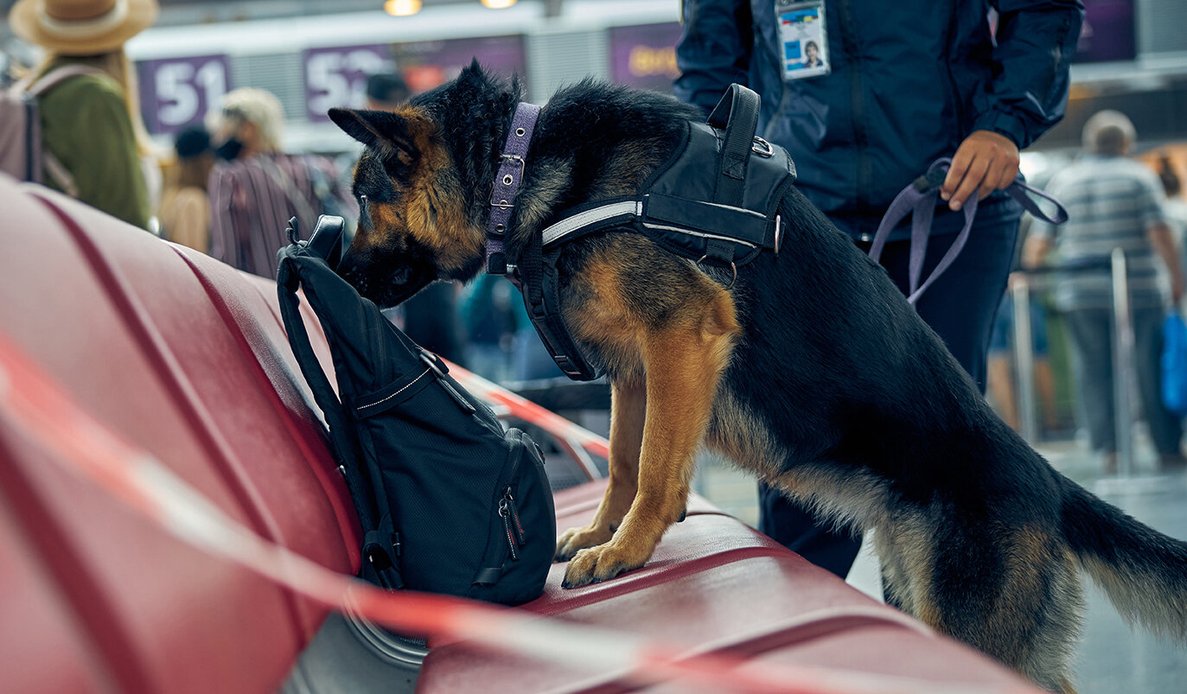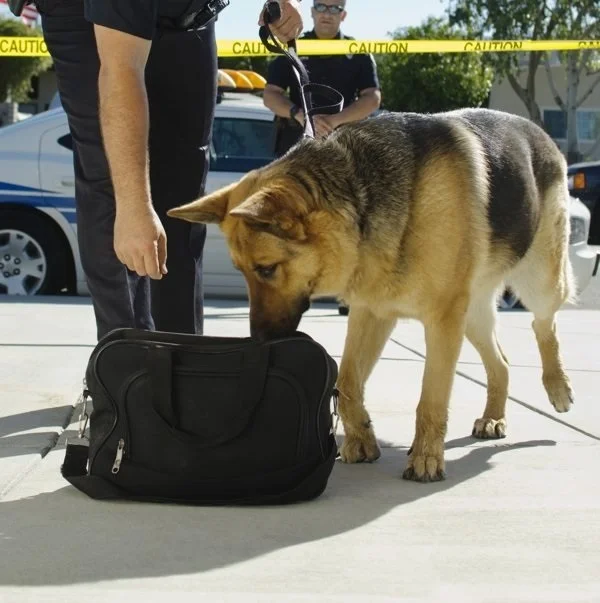Can Sniffer Dogs Smell Weed Vape Pens?

Sniffer dogs, also known as detection dogs, are highly trained and specialized to identify a variety of scents .
Sniffer dogs are so sensitive and specialized that many people wonder if they can detect weed vape pens.
Let's delve into this intriguing topic and uncover the facts.
Understanding How Sniffer Dogs Work

Use specialized rewards to reinforce the dog's ability to identify specific scents.
This heightened olfactory ability, estimated to be 10,000 to 100,000 times more sensitive than that of humans, allows them to detect even trace amounts of certain odors.
Once trained, they can reliably alert handlers to the presence of these substances.
Can Sniffer Dogs Detect Weed Vape Pens?
Some sniffer dogs may still be trained to detect the aroma of cannabis products, including weed dab pens.
Generally, sniffer dogs won’t search you specifically for weed vape pens unless the police have reasonable suspicion that you are engaged in illegal activity.
Additionally, sniffer dogs are typically used only in states where marijuana use is illegal for adults or where there is reason to believe you are underage and showing signs of use.
Why Sniffer Dogs Can Detect Weed Vape Pens?
Sniffer dogs can generally detect weed dab pens for the following reasons:
Odor Molecules:
Weed, even in concentrated forms like vape oil, emits distinct odor molecules.
These molecules can seep through packaging and linger on surfaces, making them detectable.
Residual Scents:
Vape pens often carry residual smells from weed .
Even if the pen is sealed, traces of the substance can transfer to the user’s hands, clothing, or belongings, increasing the likelihood of detection.
Training Specificity:
Modern detection dog training programs can include substances like cannabis oils and vape liquids to ensure the dogs can identify these newer forms of cannabis.
Methods to Conceal Weed Vape Pens from Sniffer Dogs
While sniffer dogs have an exceptional ability to detect even faint odors, some methods can help reduce the likelihood of weed vape pen detection.
These methods, while not foolproof, aim to minimize scent leakage and mask odors effectively:
1. Smell-Proof Bags
Invest in high-quality, carbon-lined containers specifically designed to trap odor molecules and prevent scent leakage.
Place the weed vape pen in sealed smell-proof bags.
2. Layering Scents
Combine strong scents like coffee grounds or perfumes to mask odors.
While trained dogs can isolate specific smells, adding an extra layer of scent with coffee beans or ground weed vape pen surface may help reduce detectability.
3 . Proper Storage
Vacuum-seal weed vape pen in plastic to avoid any direct contact with the exterior of the container.
Use airtight, vacuum-sealed containers to limit the spread of odor molecules.
4 . Avoid Vaping Before Crossing Dog Zones
Vaping releases concentrated vapor, intensifying the aromatic properties of weed.
This makes detection easier, even hours later.
Avoid vaping before encountering areas with drug-sniffing dogs.
5 . Use Strong-Scent Containers
Store vacuum-sealed packages inside containers with overpowering smells, such as:
Coffee beans or grounds.
Strong-smelling chemicals.
Dead fish or containers previously used for fish.
6. Using Mint to Deter Animals
Place weed vape pen in a sealed container with mints, such as peppermint or spearmint.
Mint is known to deter many animals, including dogs, who tend to avoid it.
7. Outdoor Odor Absorption
Leave weed vape pen outdoors for several days to absorb natural environmental odors, which can help dilute the distinct scent of weed .
Conclusion
Dogs have a near-supernatural ability to detect scents, including those from weed vape pens, no matter how well they are concealed.
While smell-proof containers and proper ventilation may reduce the chances of detection, there is no guaranteed method to completely hide the scent of drugs from a trained detection dog.
When considering these factors, its essential to understand the legal and ethical implications of weed use in your jurisdiction and surroundings.
